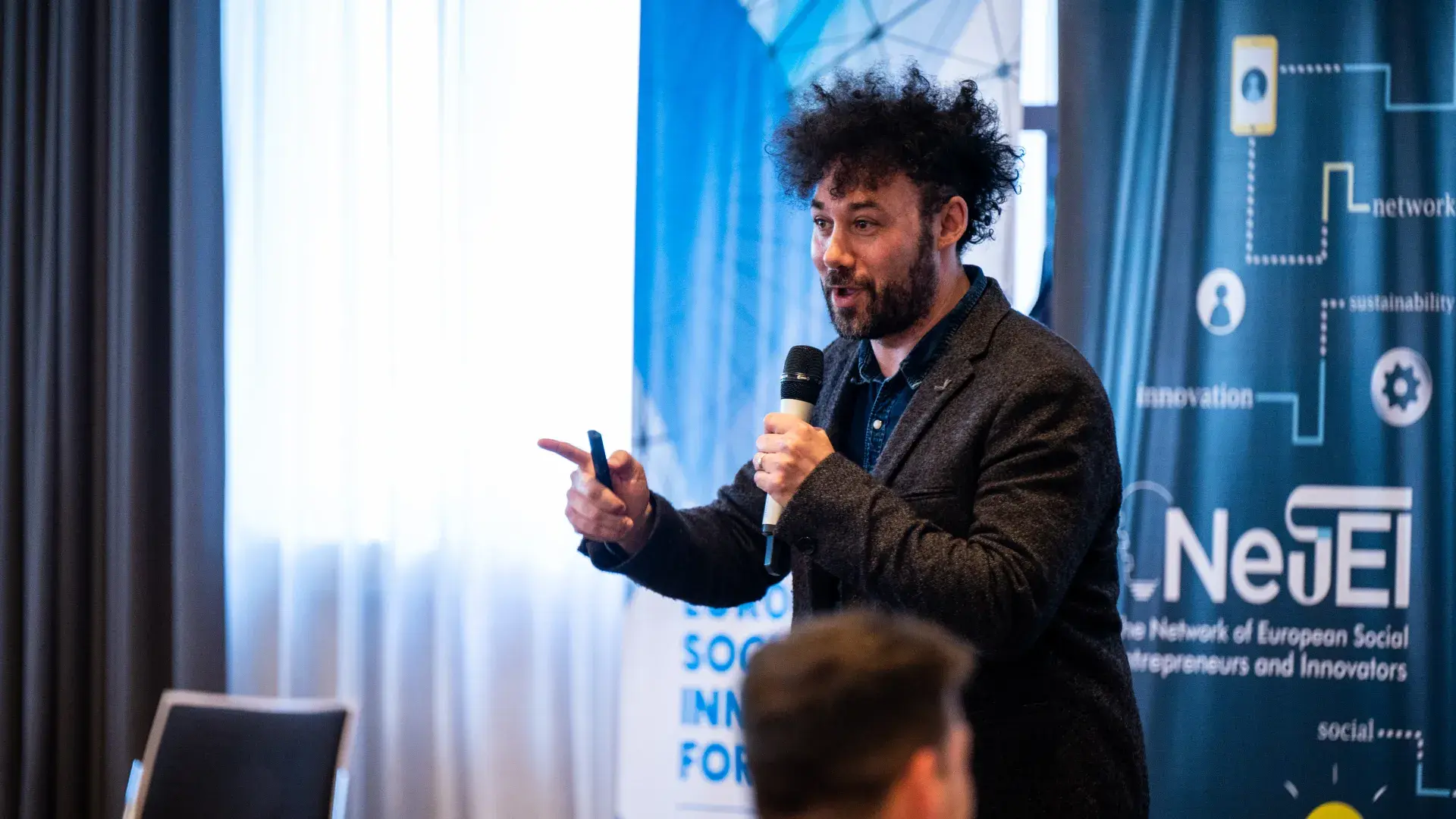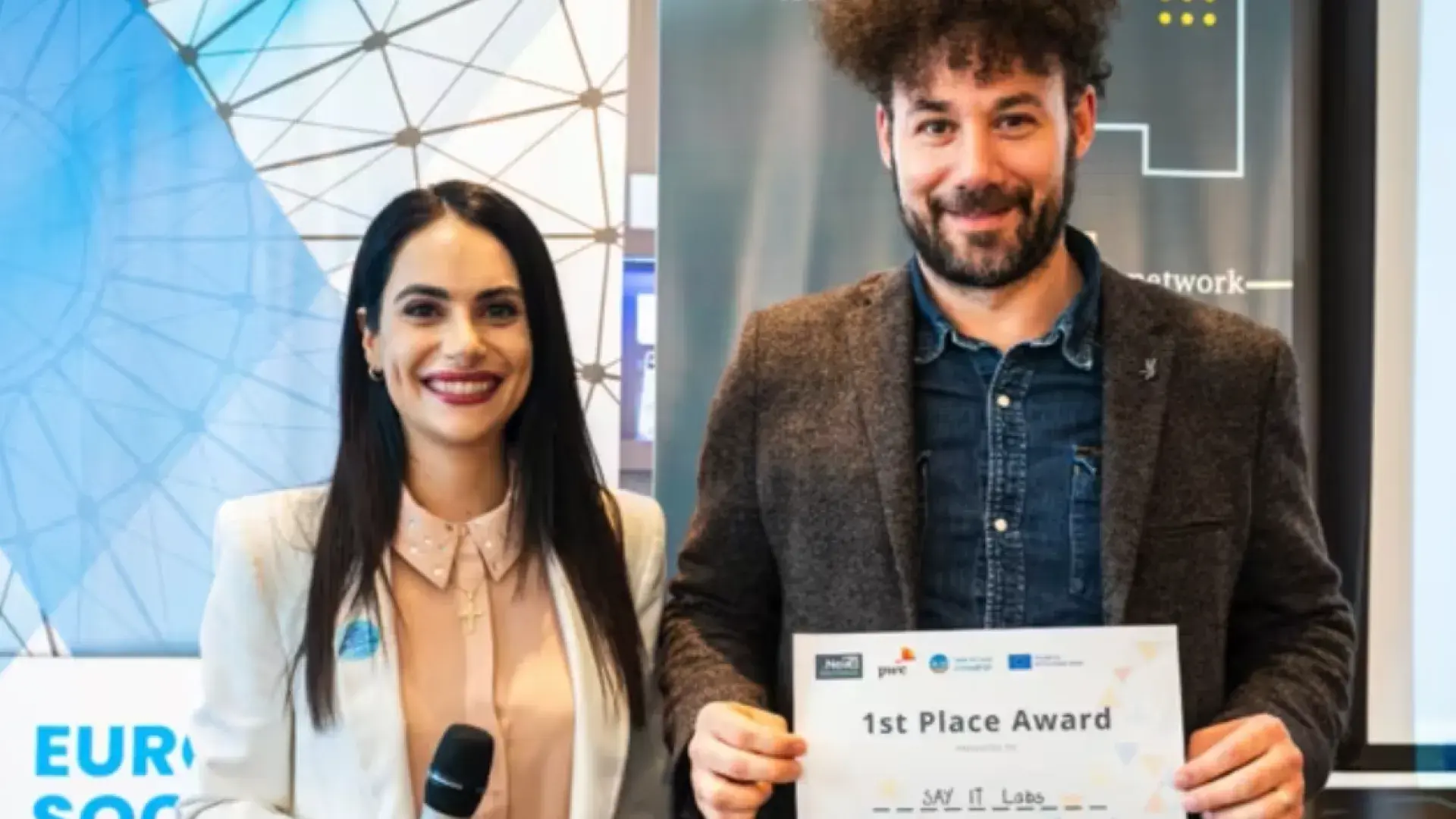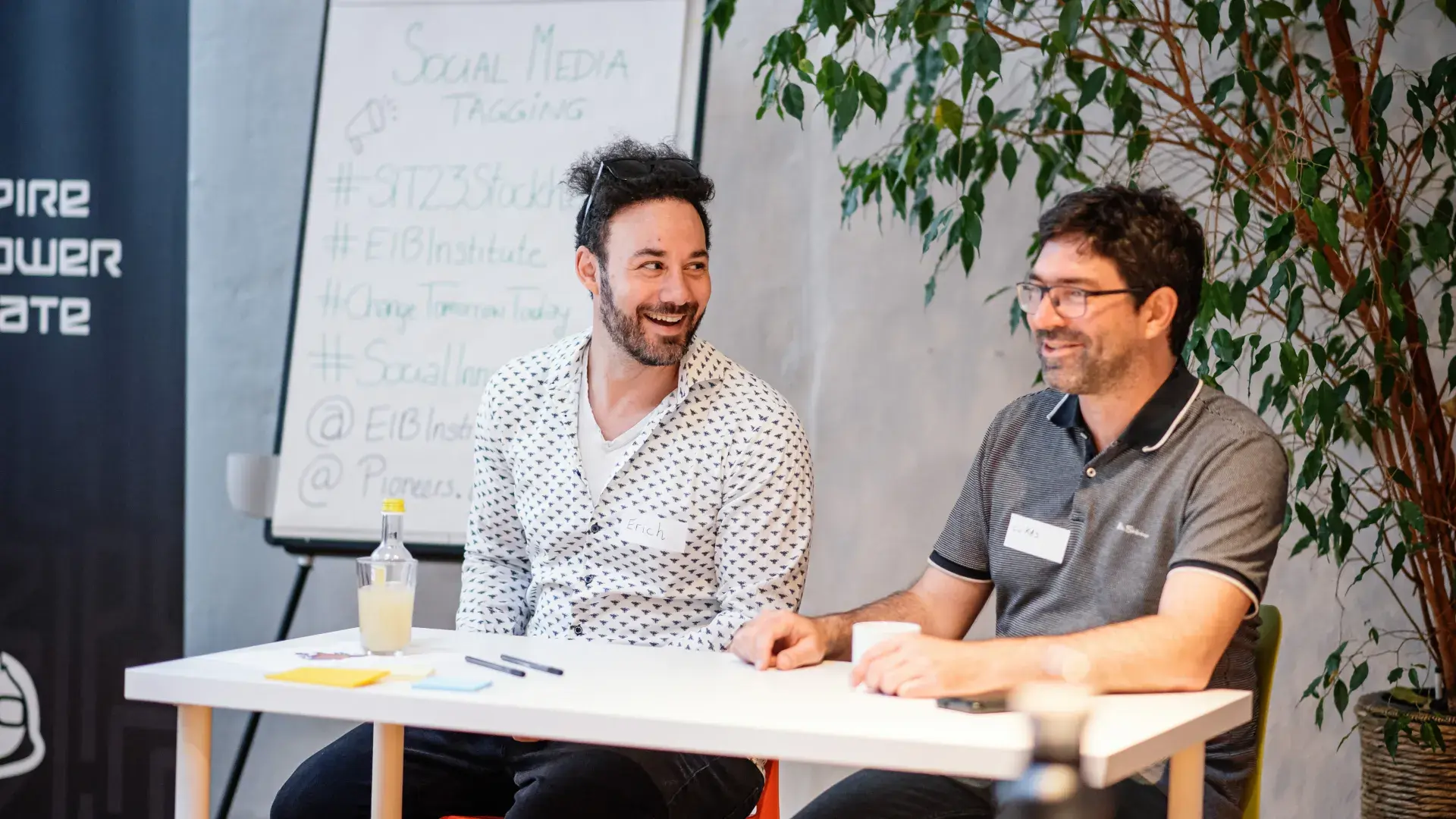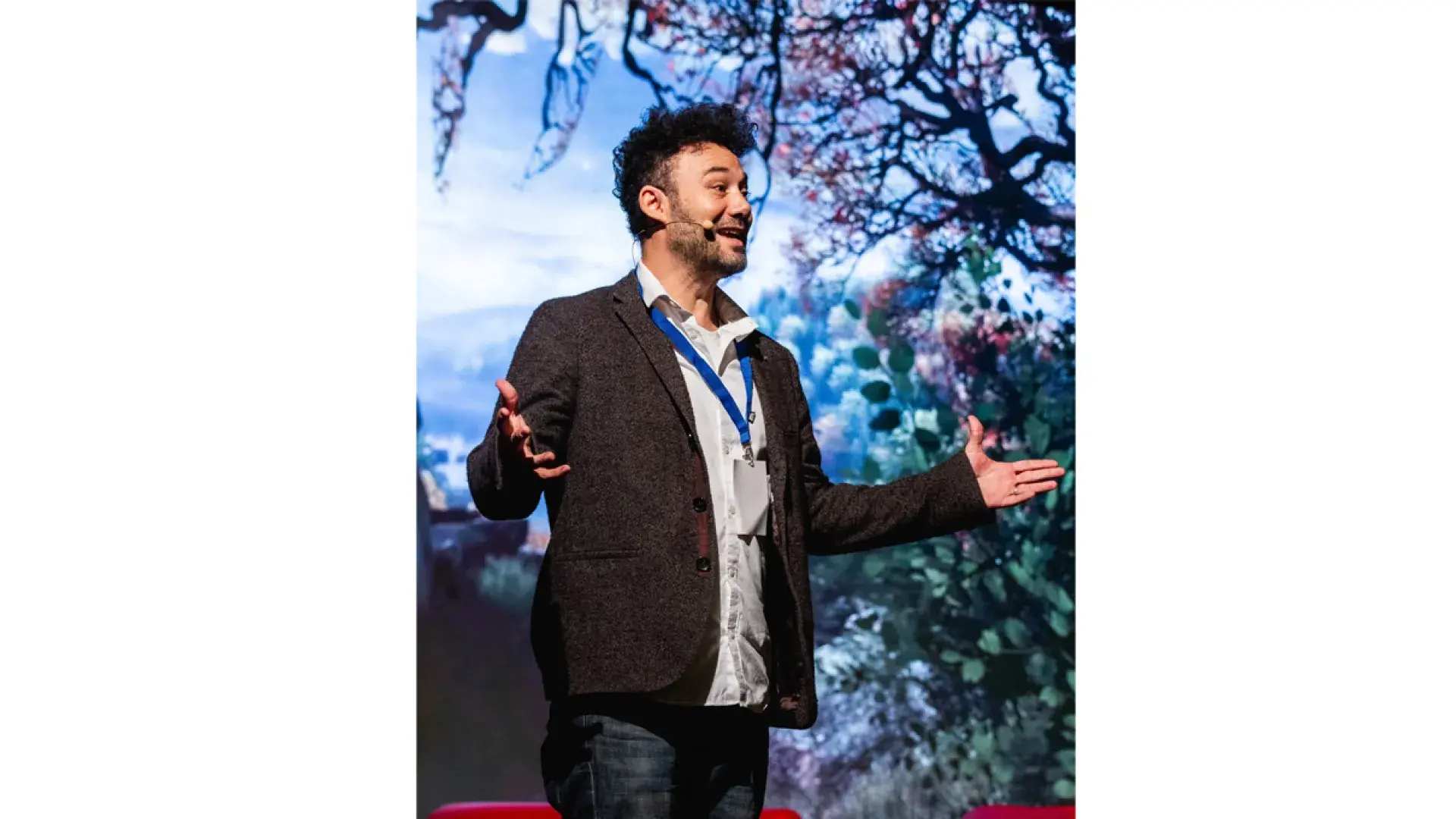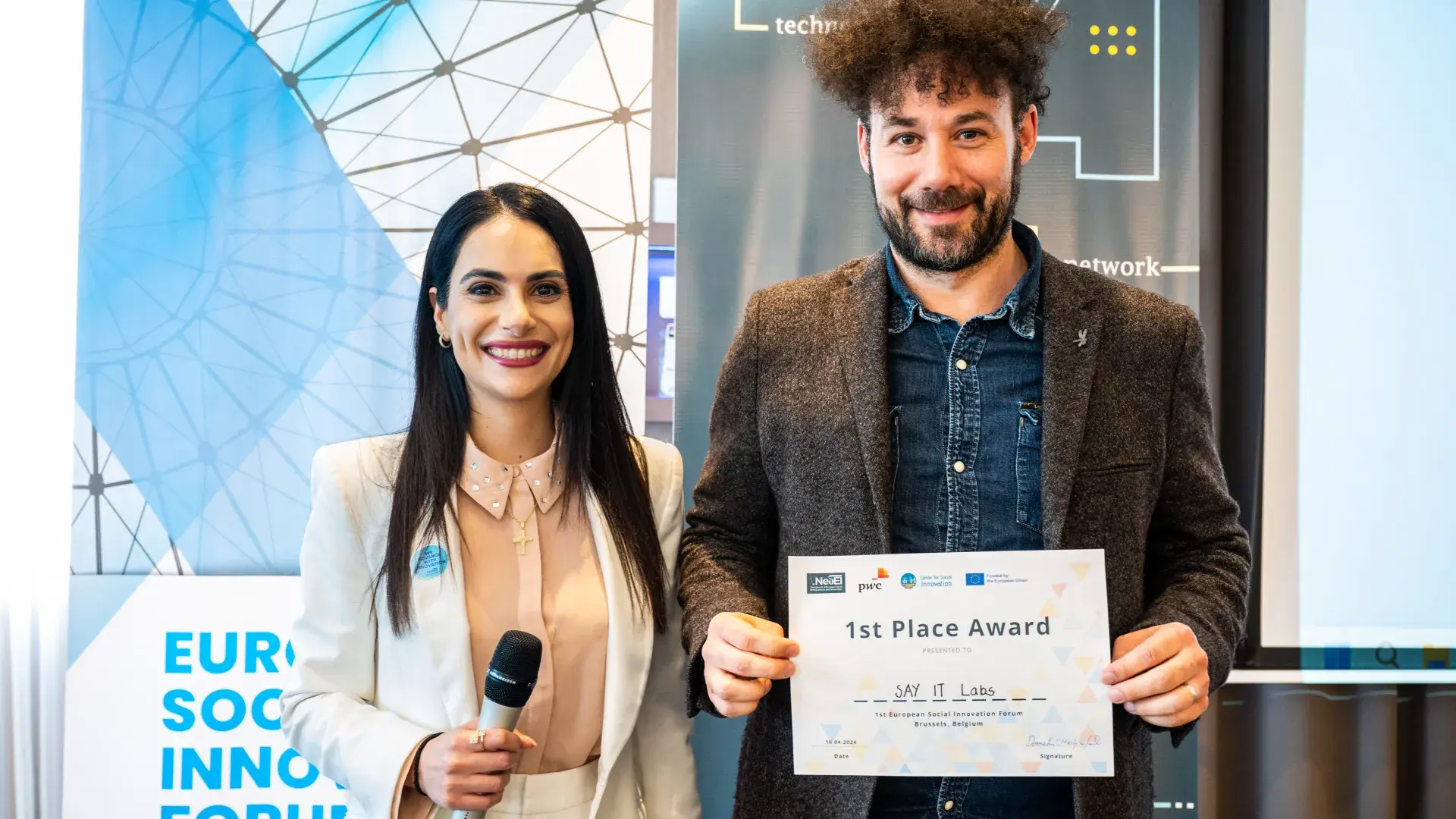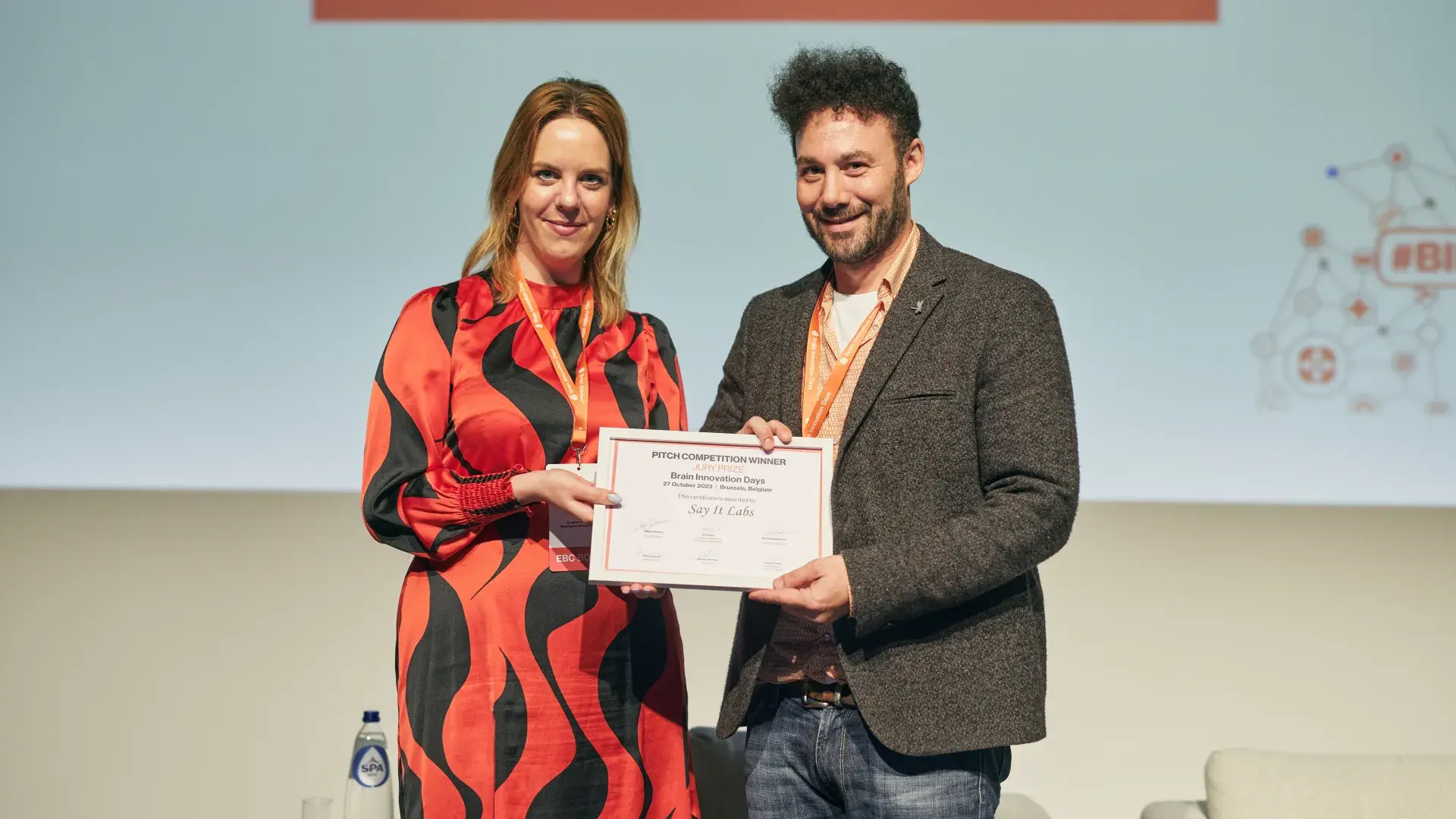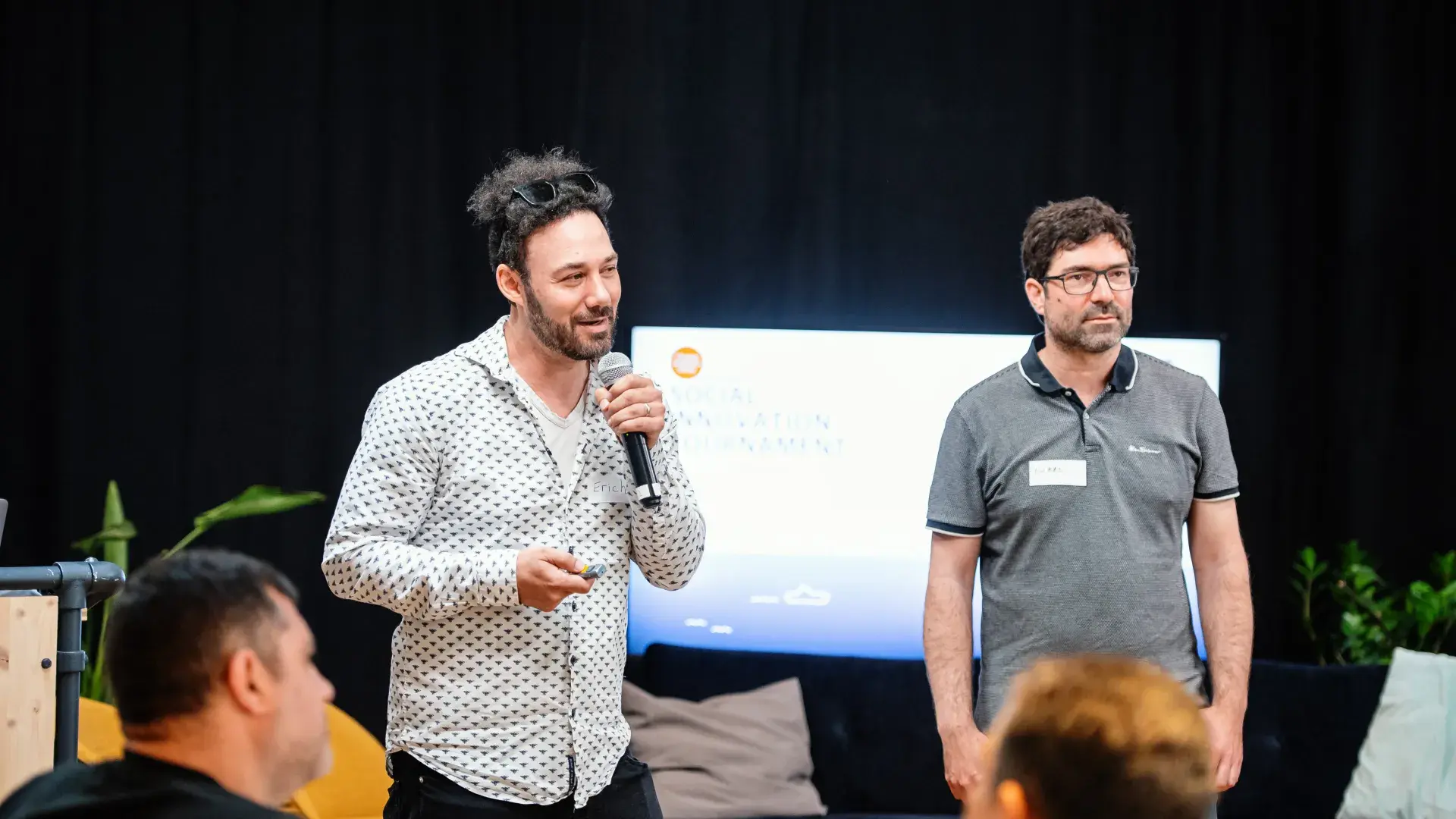
Erich Reiter’s SAY-IT Labs is using a voice-activated game to increase speech therapy access to patients – and knowledge to SLPs
Erich Reiter hopes gaming can help stem the amount of people who stutter, and he’s already taken some impressive steps to make that a reality around the world.
Start with SAY-IT Labs, the Belgian-based company at the intersection of speech recognition technology and speech-language pathology. The 2016 graduate of the Masters in Speech Language Pathology program is the company CEO with a global goal.
“We want to be a solution for people around the world,” said Reiter. “If you’re a person who stutters, this is about having access and learning about what they can do to improve their fluency. There are 80 million people around the world who stutter — and the vast majority of them do not have access to speech-language therapy.”
So, Reiter and his team are providing access through an app being used in more than 30 countries, one that combines speech recognition technology and speech pathology.
“Our app allows a child to do motor practice anytime they want, not just during a 30-minute speech therapy session,” explained Reiter on the benefit. “The idea of a video game is that you’re a character in a game, just like you would play any video game. But instead of using your hands as a joystick, your voice is the joystick.”
Enter Stutter Stars, an app filled with games that are designed to target the parts of the brain involved in speech timing, rhythm, initiation of speech, prosody, and mindfulness. In Stutter Stars, a voice becomes the superpower, and the user is at the center of the universe. Through the character Zumi, users are guided through the Lalabi Islands, with each island representing a skillset to work on. Similar to a speech therapy session between a speech-language pathologist and a client, teaching strategies are used at the beginning of each island.
On Zen Island, Zumi runs through a lush landscape where proper motor production of specific prompted words helps vegetation grow. For every word, there is audio assistance in how to say the word. On the island of Phonation Village, Zumi executes stunts with his skateboard when words are correctly produced using an easy onset strategy. Similar themes are on the islands of Pitch Heights, Slowness Swamp, and Chunking Ship; each visit teaches a unique fluency technique which has its own challenges, but with help along the way whenever necessary so that Zumi can advance.
“In a game, we'll climb a beanstalk, and how do you climb a beanstalk?” asks Reiter, rhetorically. “You have to say the words by changing your pitch. If you’re very good at changing your pitch, you'll climb the beanstalk really quickly. If not, you'll have ample opportunities to practice while being supported by the resident helper character. We add a bunch of video game elements that are playful, that get a kid engaged. And by the time they're done, they've practiced 30 to 40 hours independently on a series of different motor techniques commonly taught by fluency specialists. If you want to get good at anything, you'll need repeated practice and video games are just a fantastic way to do this.”
SAY IT Labs’ proprietary artificial intelligent (A.I.) technology mimics the guidance and feedback of a speech language pathologist (SLP) during a session by providing instant feedback and player-performance guidance during the game.
While geared toward children, the game can also be used by adults who are hesitant to practice in front of people.
“A lot of people who stutter will tell me, ‘You know, I become timid practicing around people,’” noted Reiter, who speaks Spanish, French, Dutch, Flemish, German, and Romanian. “’But when I can practice on my own and only be judged by a computer, it allows me that moment to practice, and that judgment doesn't really feel as harsh.’”
Along with audio demonstrations on how certain words should sound and tips to avoid stuttering, Stutter Stars provides nuggets of information such as, “Did you know that stuttering happens because the timing of our vocal cords misfires?” and that Charles Van Riper, the father of the speech language pathology field, also stuttered.
